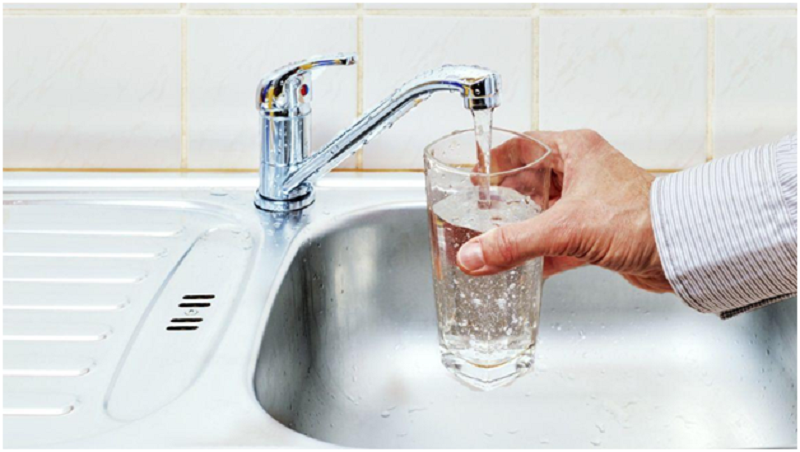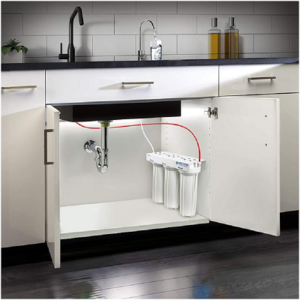Ways to Ensure Safe And Clean Drinking Water in Your Home

Hi, I am Betty Knight, Owner of this site! I…
The cost of clean drinking water keeps on increasing, and there are rising concerns about water pollution worldwide. The recent Camp Lejeune water contamination settlement amounts provide some much-needed relief for victims of the water contamination. But what does this mean for the rest of us? Many are now considering other ways of getting a constant supply of clean drinking water in their homes. There are different types of water, but no all are safe for drinking purposes. But, all is not lost, there are different ways of getting safe drinking water for your home. These include installing a high-quality water filter and testing the quality of water in your home.
What are the distinct types of drinking water in many homes?
Tap water
Tap water is readily available from your faucet. It’s widely used for cleaning, cooking, gardening, washing clothes and many other chores. But, it may not be the best for drinking purposes. It contains different contaminants that can be detrimental to your health.
Purified water
Purified water is suitable for drinking and many other purposes. The purification process involves the elimination of all toxic elements and dissolved solids. To get pure drinking water in your home, fix a water purifier and be sure to get pure drinking water throughout. See more on purewaterguide.net.
Distilled water
Distilled water undergoes reverse osmosis process that discharges all the minerals and salt in the water. It’s pure but isn’t recommended for drinking. It lacks essential minerals and salts, and drinking this type of water can result in sodium, potassium and magnesium deficiency.
Well water
When it rains, water trickles and forms underground lakes beneath the soil. When this continues over time, this becomes a primary source of water, since people dig out to form deep wells.
Mineral water
Mineral water carries lots of minerals such as calcium, and magnesium, and is obtained from underground sources. The water can’t undergo any further treatment except carbonation and iron removal. The minerals in the water give it a salty taste and make it healthy for drinking purposes.
How can you ensure safe drinking water in your home?
Clean drinking water is essential for every home. Every homeowner should ensure that there’s a constant supply of pure and clean water in their homes. Luckily, there are many things that you can do to get clean drinking water for your loved ones.
- Know what’s in your tap
Your water supplier will always mail you a statement, known as the drinking water quality report. If you don’t get it, check out the EPA’s website, they offer a variety of tools to help you understand the report. The report offers an analysis of your water. It’s also good to have a professional test your water.
- Have your water tested
Dirty water can put you in the risk of developing water-borne diseases if you don’t check the quality of your drinking water. You should conduct testing if you get your water from the municipal council or well. Don’t assume that the water is safe, even when it looks clean; it can put the health of your loved ones at risk. Have this done by a professional from a water testing company annually, or anytime you notice changes in the taste or appearance of your water.
- Invest in a quality water purifier
 Water purification is the process of expelling pollutants from your water. It uses different steps and can profit you and your family members in various ways. It eliminates arsenic, fluoride, lead and many other harmful elements that can risk your health. The best way to purify your drinking water is by acquiring a high-quality water filter.
Water purification is the process of expelling pollutants from your water. It uses different steps and can profit you and your family members in various ways. It eliminates arsenic, fluoride, lead and many other harmful elements that can risk your health. The best way to purify your drinking water is by acquiring a high-quality water filter.
Why do you need a water filtration unit in your home?
- Better taste
A water filtration unit will eliminate chlorine, bacteria and many other toxic elements from your water. The process will improve the taste of your drinking water. If you use the water for cooking, your food will also taste better since there are no contaminants in your water.
- Improved health
Some contaminants in your unfiltered drinking water can cause gastrointestinal problems and other life-threatening ailments. By excreting these hazardous substances from your drinking water, you reduce your risk to infections, and this improves your health. Clean drinking water will also benefit your kids and boost their immunity.
- A constant supply of clean water
With a water purifier, you can be sure of an endless supply of clean drinking water in your home. You will no longer need to buy bottled water, and this enables you to save more.
- Understand different contaminants and their effects
Tap water in your house may contain different contaminants. However, the degree of contamination varies from region to the other. Common categories of contaminants include;
Inorganic matter– Examples of inorganic matte found in water are; arsenic, barium, lead, and mercury.
Organic matter- Organic substances that can contaminate water supply are; pesticides, herbicides, insecticides, and fungicides. They normally include solvents, degreasers, and gasoline additives.
Microbial pathogens- These are disease-causing organisms like bacteria, parasites and viruses.
Radioactive elements- These are contaminants resulting from uranium decay in soils and rocks.
Scale– Scale is a buildup of hard mineral ions such as iron, calcium and magnesium. It presents as a cloudy white film on pipes, plumbing appliances, dinnerware and many others.
- Practice organic gardening techniques
The manures and pesticides that you use in your garden can affect the quality of water. They cause an unusual buildup of algae and release nitrogen into water bodies. This can kill aquatic life and contaminate your water sources.
Opt for natural fertilizers and bug killers and avoid using them on rainy days when they can easily be washed away by the rain. Also, avoid littering, things like plastic wrappers build up in water bodies and contaminate the water.
- Dispose of hazardous waste appropriately
Disposing of hazardous waste like paints, engine oils, and pharmaceuticals rightly will keep them off streams, wells and rivers. Recycling and re-using the re-usable materials will help keep them off water bodies.
Final thoughts
Drinking clean water will not only keep you hydrated but will also help prevent various health issues. Although there are different ways of getting clean water in your home, installing a water filter in your home ensures clean water for drinking and other purposes in your home. Also, have your water tested routinely for quality, and dispose of toxic water to avoid contamination in rivers and streams.
What's Your Reaction?
Hi, I am Betty Knight, Owner of this site! I am a 'nearing 30-year-old', happily married to 1 awesome man. We live in the beautiful tourist town of Franklin NY.



